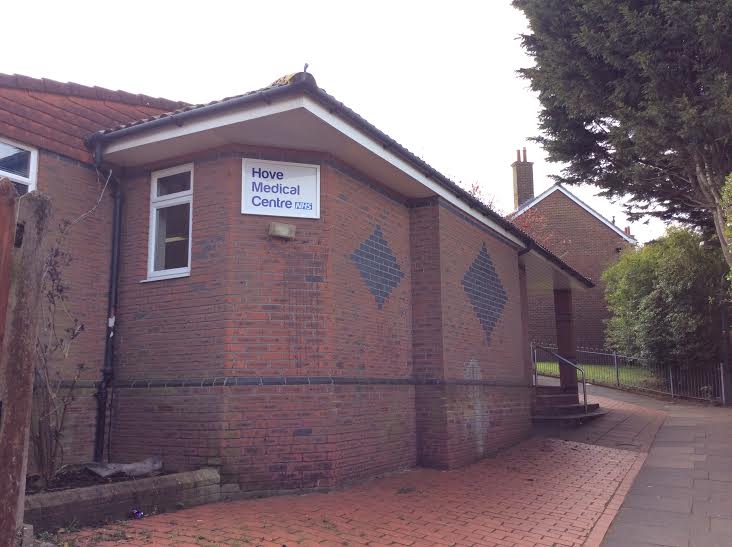A doctors’ surgery in Hove has messaged patients to tell them that it is taking “emergency appointment only” because of “high cases of strep A”.
The switch to emergencies only suggests that the number of strep A cases may have risen rapidly since the weekend.
The government’s latest weekly report of “statutory notifications of infectious diseases” listed three scarlet fever cases in the whole of Brighton and Hove.
But the UK Health Security Agency said that even a few weeks ago the number of cases was more than four times higher than this time last year.
The agency said that scarlet fever – which is usually mild but infectious and marked by a rash – is caused by bacteria called “group A streptococci”.
It added that the same bacteria caused other respiratory and skin infections such as strep throat and impetigo.
More than a dozen deaths linked to strep A have been reported in England in the past few weeks, with the deaths of children making national headlines.
Hove Medical Centre, in West Way, Hangleton, messaged patients yesterday (Thursday 8 December), saying: “Due to the high cases of strep A, the practice will be running an emergency appointment only system at present and prioritising unwell children.
“If your query is not urgent, please complete an e-consult or contact the practice next week. Thank you for your understanding.”
NHS Sussex, the new integrated care board, issued “advice for parents and carers on winter illness and infections”.
It said: “There are several common infections that your child might pick up over the winter period.
“In most cases, these infections will be a mild illness and can be treated at home. If you do need advice, your community pharmacy is a great first port of call for minor health issues.
“However, in some cases they might get worse and require medical help. Sometimes this can become more serious, particularly in younger children or if an infection spreads to a vulnerable family member.
“Health and care leaders in Sussex are urging parents to be aware of symptoms of common infections and know what can be treated at home and when to get medical help.

“Flu can be an unpleasant illness in children causing a fever, stuffy nose, dry cough, sore throat, aching muscles and joints and extreme tiredness. This can last several days or longer.
“In most cases, flu will be a mild illness in children. Some children can get a very high fever, sometimes without the usual flu symptoms, and may need to go to hospital for treatment. Serious complications of flu include a painful ear infection, acute bronchitis and pneumonia.
“The best way for your child to avoid flu is to ensure your child is vaccinated against flu.
“There have also been reports this winter about cases of scarlet fever.
“Scarlet fever, or ‘strep A’, is caused by bacteria called group A streptococci (strep). Scarlet fever is usually a mild illness but it is highly infectious.
“Look out for symptoms in your child which include a sore throat, headache and fever, along with a fine, pinkish or red body rash with a sandpapery feel.
“On darker skin, the rash can be more difficult to detect visually but will have a sandpapery feel.
“Contact NHS 111 or your GP practice if you suspect your child has scarlet fever because early treatment of scarlet fever with antibiotics is important to reduce the risk of complications such as pneumonia.
“There are lots of viruses that cause sore throats, colds and coughs circulating and these should resolve without medical intervention.
“However, children can on occasion develop a bacterial infection on top of a virus and that can make them more unwell.
“Contact NHS 111 or your GP practice if
- your child is getting worse
- your child is feeding or eating much less than normal
- your child has had a dry nappy for 12 hours or more or shows other signs of dehydration
- your baby is under three months and has a temperature of 38C or is older than three months and has a temperature of 39C or higher
- your baby feels hotter than usual when you touch their back or chest or feels sweaty
- your child is very tired or irritable
…
Call 999 if
- your child is having difficulty breathing – you may notice grunting noises or their tummy sucking under their ribs
- there are pauses when your child breathes
- your child’s skin, tongue or lips are blue
- your child is floppy and will not wake up or stay awake
…
“Good hand and respiratory hygiene are important for stopping the spread of many bugs. By teaching your child how to wash their hands properly with soap for 20 seconds, using a tissue to catch coughs and sneezes and keeping away from others when feeling unwell, they will be able to reduce the risk of picking up or spreading infections.”
NHS Sussex added: “This is the first winter without pandemic restrictions in two years and you and your children may be more susceptible to the usual winter bugs and viruses this year.”









